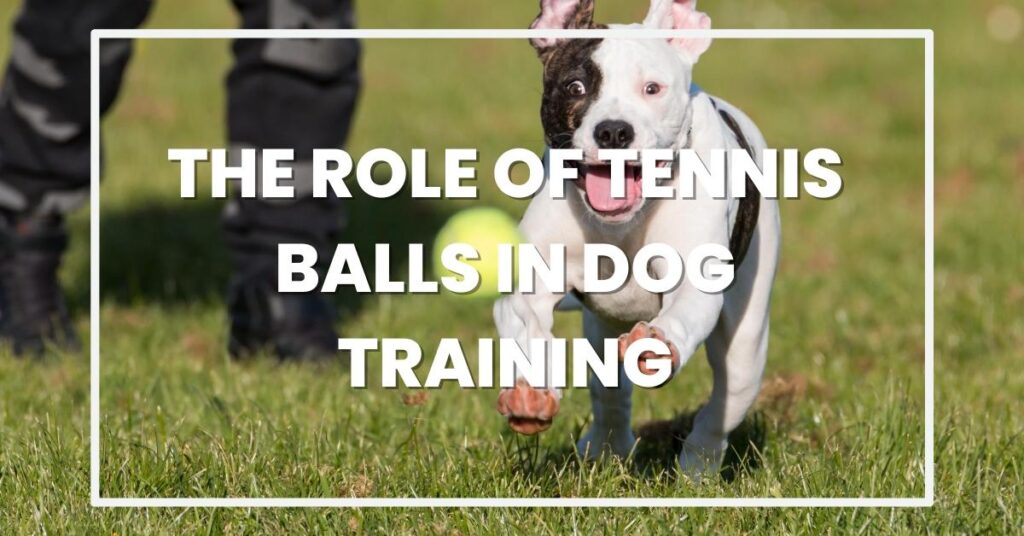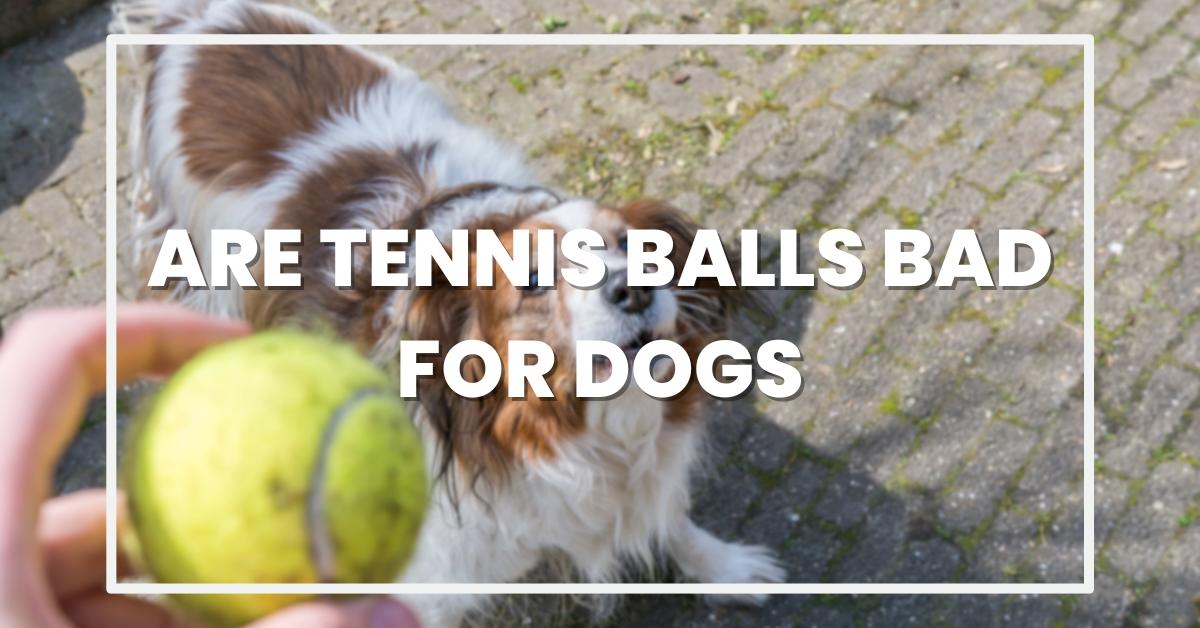Dogs are naturally playful creatures, and tennis balls are often used as a go-to toy for many pet owners. However, the question are tennis balls bad for dogs has been a topic of debate among veterinarians and dog enthusiasts. In this comprehensive article, we’ll dive deep into the pros and cons of using tennis balls as dog toys, exploring various aspects to help you make an informed decision.
Are Tennis Balls Bad for Dogs
Tennis balls are a popular choice for dog toys, but are they really safe for our furry friends? The answer is not as straightforward as you might think. While tennis balls can provide hours of fun and exercise, they can also pose some potential hazards to your dog’s health. In this article, we will explore the pros and cons of tennis balls for dogs and provide some tips on how to keep your dog safe while playing with them.
Tennis balls are a popular choice for dog toys, but are they safe? The answer is yes and no. Tennis balls are made of rubber that can be abrasive to your dog’s teeth. If your dog chews on a tennis ball too much, it can damage their teeth and gums.
Tennis balls are a common toy for dogs, but are they safe? The answer is not as straightforward as you might think. While tennis balls can provide hours of fun and entertainment, they can also pose some risks to your furry friend.
The Safety Risks of Tennis Balls
While tennis balls may seem like an innocent and affordable toy for dogs, they can pose several safety risks that pet owners should be aware of. One of the primary concerns is the potential for intestinal blockages or obstructions if a dog ingests part or all of the tennis balls. These balls are not designed for consumption and can cause serious health issues if swallowed. Additionally, the abrasive felt surface of tennis balls can gradually wear down a dog’s teeth over time, leading to dental problems and discomfort. It’s essential to supervise your furry friend closely when playing with tennis balls and consider safer alternatives, such as specialized dog toys made from durable, non-toxic materials.
Obsessive Behavior
Some dogs can develop an obsessive behavior towards tennis balls, which can be both concerning and potentially dangerous. These furry companions may become fixated on chasing, catching, and carrying tennis balls, to the point where they neglect other activities or ignore their owners’ commands. This obsessive behavior can lead to behavioral issues, such as aggression or resource guarding if the tennis ball is perceived as a valuable resource. It’s crucial to recognize the signs of obsessive behavior and address them promptly by redirecting your dog’s attention and reinforcing positive behaviors through proper training techniques.
Choking Hazards
Tennis balls can pose a significant choking hazard, particularly for smaller dogs or puppies. If a dog manages to tear off and ingest pieces of the felt or rubber, it can lead to a dangerous situation. The size of the ball may also present a choking risk if it becomes lodged in the dog’s throat or airway. It’s essential to supervise your dog closely when playing with tennis balls and remove the toy immediately if they start shredding or ingesting it. Consider investing in appropriate-sized dog toys specifically designed for safe chewing and play.
Are Tennis Balls Okay for Dogs to Play With?
While tennis balls can be a fun and engaging toy for some dogs, their use should be approached with caution and supervision. If your dog is a gentle player and does not have a tendency to chew or ingest the ball, it may be okay to use tennis balls for occasional playtime. However, it’s crucial to monitor your pet closely and remove the ball promptly if it starts shredding or attempting to consume it. Additionally, consider providing tennis balls as a supervised activity rather than leaving them as a free-play toy when you’re not around.
Are Tennis Balls Bad for Dogs to Play With?
Tennis balls can be potentially harmful for dogs to play with, especially if used without proper precautions. The abrasive surface can wear down a dog’s teeth over time, leading to dental issues and discomfort. The risk of ingestion and subsequent intestinal blockages or obstructions is also a significant concern. Furthermore, some dogs may develop an unhealthy obsession with tennis balls, leading to behavioral problems. While occasional supervised playtime with tennis balls may be acceptable for some dogs, it’s generally recommended to explore safer alternatives, such as durable, dog-specific toys made from non-toxic materials.
The Allure of Tennis Balls
Tennis balls have long been a popular choice for dog toys due to their affordability, availability, and bouncy nature. Dogs love chasing and fetching these bright, fuzzy spheres, making them an excellent option for interactive playtime and exercise.
Potential Risks of Tennis Balls
While tennis balls may seem harmless, they can pose some risks to your furry friend if not used properly. Here are some potential concerns:
Choking Hazard
One of the primary concerns with tennis balls is the risk of choking, especially for smaller dogs or dogs with a strong chewing habit. If a dog manages to tear off and ingest pieces of the felt or rubber, it can lead to a dangerous intestinal blockage.
Tooth Damage
The abrasive felt surface of tennis balls can gradually wear down a dog’s teeth over time, potentially causing dental issues.
Intestinal Blockage
If a dog swallows a tennis ball or large chunks of it, it can lead to a serious and potentially life-threatening intestinal blockage, requiring immediate veterinary attention.
Safety Considerations
While tennis balls pose some risks, there are ways to mitigate these concerns and ensure safer playtime for your canine companion.
Supervision
Always supervise your dog when playing with tennis balls, and remove the toy immediately if they start shredding or ingesting it.
Appropriate Size
Choose tennis balls that are appropriate for your dog’s size. Smaller dogs may be better suited for smaller, softer balls to reduce the risk of choking.
Alternatives
Consider alternative dog toys made specifically for canine playtime, such as durable rubber balls, rope toys, or puzzle feeders. These toys are designed with your dog’s safety in mind.
The Role of Tennis Balls in Dog Training

While tennis balls may pose some risks as toys, they can serve an important purpose in dog training and obedience programs.
Dog Training Facility in Northern Virginia Many professional dog training facilities, including those in Northern Virginia, utilize tennis balls as effective training tools. They can be used as rewards, distractions, or for teaching commands like “fetch” and “drop it.”
Positive Reinforcement
Tennis balls can be used as positive reinforcement during training sessions, as most dogs find them highly motivating and engaging.
Obedience Training
Tennis balls can be incorporated into obedience training exercises, teaching dogs to follow commands and respond to cues while engaging with a familiar and appealing object.
Dog’s Love for Tennis Balls
Despite the potential risks, it’s undeniable that dogs love tennis balls. Their intense fascination with these fuzzy spheres is rooted in their natural instincts.
Prey Drive
The bouncing and rolling motion of tennis balls can trigger a dog’s prey drive, tapping into their predatory instincts and making the chase and capture of the ball incredibly rewarding.
Scent and Texture
The distinct scent and texture of tennis balls can be highly appealing to dogs, engaging their keen sense of smell and providing a satisfying chewing experience.
Interactive Playtime
Tennis balls provide an excellent opportunity for interactive playtime between dogs and their owners, fostering a strong bond and promoting physical and mental stimulation.
Conclusion
While tennis balls can pose some risks to dogs, they can also serve as valuable training tools and provide engaging playtime opportunities. By understanding the potential hazards and taking necessary precautions, dog owners can strike a balance between enjoying the benefits of tennis balls and ensuring their furry friend’s safety. Ultimately, responsible supervision, appropriate toy selection, and incorporating safer alternatives when necessary can help mitigate the risks and allow your dog to enjoy the thrill of chasing and fetching tennis balls in a secure environment.
FAQs
Can dogs play with tennis balls?
Yes, dogs can play with tennis balls occasionally, but they’re not the most suitable toys for them. Tennis balls are made of a hard rubber material that can be abrasive on dogs’ teeth and gums, and they can also be a choking hazard if swallowed.
Why are tennis balls bad for dogs
Tennis balls are bad for dogs because they can cause several health problems. The hard rubber material can damage dogs’ teeth and gums, and the fuzzy outer layer can be a choking hazard. Additionally, tennis balls can contain toxic chemicals that can be harmful to dogs if ingested.
What are the alternatives to tennis balls for dogs?
There are many safer alternatives to tennis balls for dogs, such as rubber balls, rope toys, and plush toys. These toys are softer and less likely to cause damage to dogs’ teeth and gums, and they are also less likely to be a choking hazard.
What should I do if my dog swallows a tennis ball?
If your dog swallows a tennis ball, it is important to seek veterinary attention immediately. Tennis balls can cause blockages in the digestive tract, which can be life-threatening.
How can I prevent my dog from swallowing tennis balls?
The best way to prevent your dog from swallowing tennis balls is to supervise them when they are playing with them. You should also avoid giving your dog tennis balls that are too small for them to swallow.



